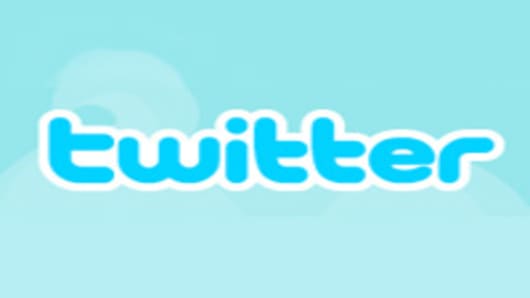If someone were to value Twitter for its sports application alone, yesterday was the single most damaging day for the brand.
It started with more teams banning players from tweeting during team business hours, continued with a more stringent policy by ESPN on its reporters conduct on the site and eventually ended with the news that 10 NFL teams were not allowing reporters to tweet from open, public practices.
Did we mention that Antonio Cromartie was fined $2,500by the Chargers for tweeting that the team served "nasty food?"
All these are really separate issues, so let's tackle them one by one.
On the subject of teams not allowing their players to tweet while they are with the team, or in some cases about team business, I get it.
Sure, we all love to hear the inside dirt. It's what makes Twitter great. But just because it's sports doesn't mean it isn't a private business. I know, you're going to name all the companies that don't ban Tweeting - trust me, it's coming.
There's a fine line here.
One, there are freedom of speech issues. But there's also business information that one obtains from being on the inside that should remain confidential no matter what the medium is - e-mail, blog or Twitter. I get that.
Should Cromartie be fined for his "nasty food" comment? I don't think so.
Should he have been fined if he tweeted the name and the idea of a new Chargers play from the playbook? Of course.
What teams have to understand is that there is value for fans in getting an inside look and they should encourage players to keep tweeting. There's a really simple way to do it: Just tell them not to tweet anything they wouldn't tell a reporter.
Now let's hit on the ESPN policy, which basically told reporters not to file personal tweets and to behave as if everything they say is being published, which it is.
I have absolutely no problem with this policy. As long as your name is associated with ESPN, you are reporting for the company. The fact that it's 140 characters or less doesn't change that.
Does it potentially take away getting to know some of the inside stories of how a certain reporter works? Yes. But I totally get it. Not only does ESPN want to monitize what reporters do for them -- the memo suggested that streaming tweets to the Web site might be coming -- they also want to make sure everything is professional. There's more to lose from talking too much about the inside and from speculating on something a reporter would never do on air or on ESPN.com.
Finally, on to the 10 teams who are not allowing reporters to tweet from open, public practices. Wake up. This is complete and utter nonsense.
If a reporter has a following who wants play by play of practice, why wouldn't you as a team allow that? What's the damage?
If everything is out in the open and, a fan can tweet it, how do you deny a reporter?
Shame on the teams who are so scared of the medium, they can't see the light - even after the NFL encouraged them to allow reporters to tweet from these practices.
In these times, denying access is not a good move.
So where does this leave us?
What we know is that in the near future, Twitter will continue to be a good source of news feeds. On a personal note, it has, for the most part, replaced my need to individually check blogs as I once had.
Unfortunately, that's not where Twitter shines. Twitter's genius lies in the ability of us to learn about the day to day lives of athletes and personalities in the business.
If the restrictions placed on these people are such that they are bland, edited and not entertaining, I'm afraid Twitter is going to lose some serious traction.
I once thought that Twitter's enemy was perhaps an easier, simpler platform. Yesterday, proved otherwise.
Twitter's enemy is an increasingly paranoid corporate society that, especially in this vulnerable economy, wants to make sure that access doesn't come at the expense of business.
Questions? Comments? SportsBiz@cnbc.com



